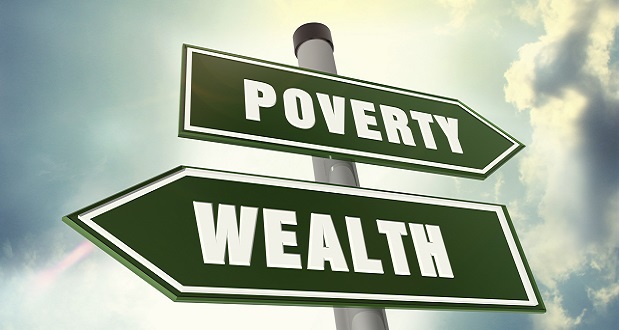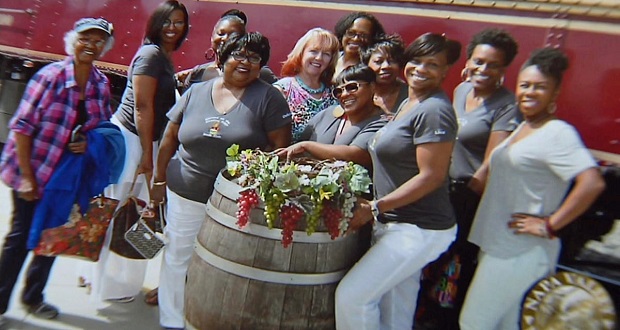
[Editor’s Note: This piece forms part of the “Facing Fragility” series. Find the previous posts here: Part 1, Part 2, Part 3, Part 4, Part 5.]
As I reflected on this assignment, it was difficult for me to think of myself as a part of the “dominant group” as a Baby Boomer as contrasted to my GenX and Millennial brothers and sisters, who might feel marginalized by their generational label. Navigating my primary identities as a black woman has always superseded any sense that I hold a place of privilege. I did not give much conscious thought to how my generation might, in some way, privilege me.
I came of age during the height of the Civil Rights Movement of the seventies, and I thought my worldview had been almost entirely shaped by experiencing the exclusionary and discriminatory racial and gender norms and practices that were prevalent and accepted during that era. I did not give much thought to my generation, and especially not in the context of fragility.
I definitely resonate with Robin DiAngelo’s definition of white fragility as a state in which even a minimum amount of racial stress becomes intolerable to white people, triggering a range of defensive moves. As a black woman, I certainly do not have the privilege of being fragile. I have to be tough. There can be no crying or defensiveness when I witness micro-inequities in the workplace. When I am told that I am too sensitive or that I am playing the “race card,” I do not have permission to be defensive if I want to maintain the relationship. When I am told, “we treat everyone the same here,” I have to muster up a veiled smile. Fragility only works for white people as an acceptable response to “racial stress.”
I have to confess that I have a hard time envisioning that my generation affords me the power to be “fragile” and that even if it does, generational differences do not hold the same history of oppression and marginalization as race. Generational fragility, from my worldview, is not nearly as egregious as race-based fragility. However, this exercise has helped me to better understand that my generational influences are inextricably entwined with my other identities, and that my status as a Baby Boomer is a distinct identity that matters in how I show up, and how those from other generations perceive me. Even though I don’t think generational differences are of the same ilk as racial differences, I have reflected on how younger generations might see my Baby Boomer identity as one of privilege, and how my generational fragility might manifest and deny others their voice and truth.
I have reflected on how younger generations might see my Baby Boomer identity as one of privilege, and how my generational fragility might manifest and deny others their voice and truth. Share on XBaby Boomers, until recently, were the largest population cohort (Millennials now hold that distinction) and as such, were the standard against which others were compared. Baby Boomers, to some extent, are still in the position of power—the dominant group—even though the balance of power is shifting rapidly. GenX’ers and Millennial stereotypes have traditionally been contrasted to Baby Boomer norms: Baby Boomers work “harder,” are more loyal than Millennials. Millennials are “entitled” and don’t want to pay their dues like Baby Boomers did to get ahead. Baby Boomers have more experience, and therefore know more. GenX’ers have been labeled as apathetic, cynical slackers.
While these stereotypes are just that, and therefore not useful, these are the perceptions that GenX’ers and Millennials are well aware that some Baby Boomers hold. Many may have entered the workforce feeling that they have to put extra effort into dispelling these myths. Baby Boomer fragility (power) permits us to put negative labels on younger generations and defend them as truths, disregarding the harm we might be causing. This power allows us to be defensive if challenged by younger generations, and declare our ways as the better ways, silencing their voices.
Baby Boomer fragility (power) permits us to put negative labels on younger generations and defend them as truths, disregarding the harm we might be causing. Share on XHere is an example of how my fragility as the dominant Baby Boomer almost showed up at The Winters Group. The majority of my team is comprised of Millennials and GenX’ers; Baby Boomers are definitely in the minority. The team has adopted a Friday practice of sharing “Thank God it’s Friday (TGIF)” GIFs in one of our Slack (a team collaboration tool) channels. Initially, I interpreted this to mean that they did not like their work and could not wait for Friday to come so they could completely shut down until Monday morning. My “hard work” ethic reared its head. Fridays don’t mean much to me as a symbol that work should stop, and I want my team to feel like they blend their lives rather than “check out” on Friday. I was hurt (fragile) because I prided myself on trying to offer the team flexibility and other perks that are supposed to be important to Millennials. Confirmation bias at its best (or worst) showed up. “See, these Millennials really don’t have a good work ethic.”
I am so glad that before I shared my feelings with the team, I practiced one of the skills that is a hallmark of The Winters Group philosophy: self-reflection. I asked myself where my interpretation came from— which of course was my generational lens of what hard work and dedication looks like. Could it be that the TGIF GIFs had nothing to do with how they felt about their work or their dedication to it? Could it be that the GIFs did not mean that they were not willing to work on weekends occasionally? Could it be that the GIFs were just fun competition as to who could post the funniest and most outrageous image? (After all Millennials like fun…OOPS–another stereotype! Shame on me). Did I not have lots of other evidence that the team is very hard-working and is willing to do what it takes to produce high quality work? The unequivocal answer to all of these questions is “yes.”
I am revealing this example to the team for the first time in this post, and I want them to know that I have come to love the TGIF GIFs—and if I knew how to post them, I would join in! (Stereotype: Baby Boomers are technologically illiterate. I really do know how to do it, it just takes me too long to figure it out each time. Maybe that’s a memory thing…LOL.). I also want them to know that I so appreciate their contributions to The Winters Group, and the wonderfully diverse perspectives that their generational lens brings.
Addressing our fragility requires our willingness to do deep self-reflection, asking ourselves what triggers our defensiveness and hurt. Rather than projecting our feelings onto the other person, we need to turn inward to examine the root of our emotional reactions. When we are unwilling to do this self-work, we can make no progress in our quest of an inclusive, equitable world. Self-understanding is the first step.
Rather than projecting our feelings onto the other person, we need to turn inward to examine the root of our emotional reactions. Share on X

















